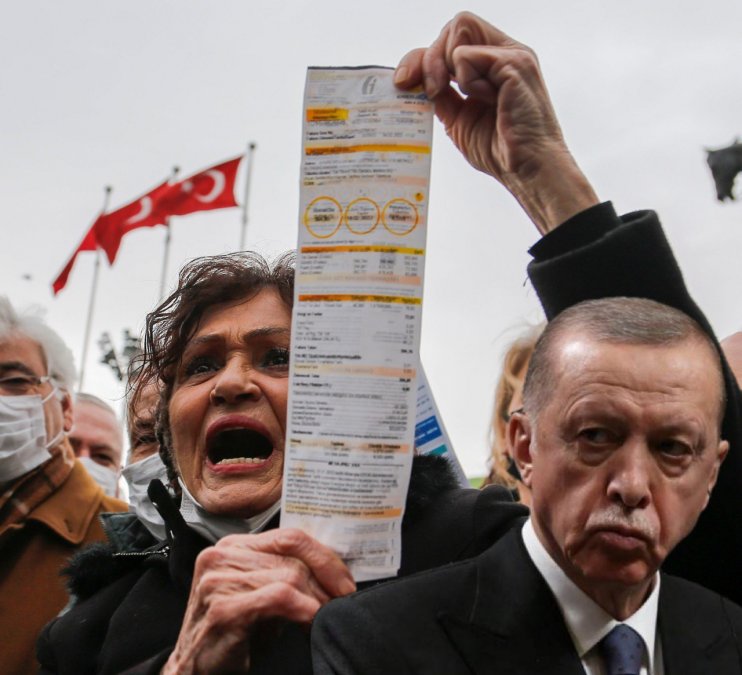Erdogan’s Achilles heel: Part 1
According to Iran Gate, the Turkish elections reached a second round despite Recep Tayyip Erdogan’s claims that he would defeat Ekrem Imamoglu and secure over 50% of the votes. Many observers believe that the decline in Erdogan’s popularity and that of the Justice and Development Party (AKP) is due to the economic recession and the worsening living conditions of the country’s citizens in recent years.
On May 28, 2023, Erdogan and Imamoglu see a fierce battle ahead for power. According to experts, the chances of AKP winning in the second round are much higher compared to the opposition. However, in 2018, when another election was held and AKP decisively won, no one thought that four years later Erdogan would face such difficulties in defeating the leader of the opposing party to the point of having to go to a second round of elections.
But what is the reason behind this event? What is the significant decrease in the popularity of AKP and its leader among different segments of Turkish society? Iran Gate has attempted to answer this important and key question in a two-part investigation, providing an analysis of the political alignments in the Turkish elections.
I heard the roar of inflation from the heart of the Bazaar to the ears of the people.
After the gradual discovery of the COVID-19 vaccine, which was able to gradually control the flames of the coronavirus pandemic, both large and small economies around the world have slowly started taking measures to repair the damages inflicted on the economy. The Turkish government, led by Erdogan, also adopted new policies to compensate for the losses caused by the closure of industries and businesses. However, these policies, which seemed strange and unscientific to Turkish economists, not only failed to untangle the country’s crippled economy but also caused Turkish citizens, who had not experienced severe inflation for over twenty years, to once again face serious livelihood problems.
What is the reason for the animosity of Islamists towards modern banking?
One of these policies was the suppression of interest rates with the aim of attracting investment in the production sector. This idea, which had been evident in Erdogan’s statements for years and had its roots in his Islamist inclinations and his emphasis on justice and development, was supposed to save Turkey’s post-COVID-19 economy from recession and collapse. However, this policy faced strong reactions from economists and economic activists in the country.
According to these experts, they believed that suppressing interest rates not only could not guide capital towards production, but it also increased the speed of money circulation and strengthened speculative activities. Despite all the opposition, Erdogan did not back down from his policy and even dismissed three central bank governors. This action was taken while government intervention in monetary and banking policy in Turkey contradicts the principles of economic management in the country. Nevertheless, Erdogan insisted on his position and interest rates have been facing severe suppression until now.
By examining the intellectual foundations of Turkish Islamists who consider the Muslim Brotherhood as their origin, it can be understood that there are serious conflicts between this way of thinking and the principles and rules of modern banking. These conflicts become more intense and noticeable when it comes to the discussion of interest rates.
As mentioned, Islamic currents claim that interest rates are a manifestation of usury and are considered forbidden in Islam. Therefore, factions of the ruling party in this country have repeatedly criticized Erdogan’s inaction towards Turkey’s monetary policy, which was based on the mainstream economic trend.
The grudge that Erdogan faced
Erdogan had been pursuing such policies in Turkey’s economic platform for years, but he did not have a suitable opportunity to implement them. However, the COVID-19 pandemic and the closure of industries and productive sectors of the world’s economies provided a good excuse for the leader of the ruling party in Turkey to gain more support from his Islamic and nationalist allies than ever before.
Nevertheless, Erdogan intervened in monetary and banking policy to suppress interest rates. He and the proponents of this idea expected that by doing so, the stagnant money in banks would flow into productive sectors and investments in the Turkish economy. However, what happened was exactly the opposite of what Turkish Islamists expected. The uncertainty caused by the COVID-19 pandemic increased the investment risk and reduced the attractiveness of investing in production, as well as heightened tensions with the United States.
As a result, the accumulated funds and deposits in banks were transferred to the financial markets, and the activities of bond traders intensified. This led to an unprecedented and rapid circulation of money in the country, triggering an inflation bomb in Turkey. It is said that Erdogan’s ideological and religious approach to the economy empowered him and his government, even turning away low-income Muslims who supported traditional justice and development.
In the next section, we will examine the consequences of Erdogan’s adoption of this policy, as well as the impact of economic tensions on Turkey’s electoral struggles.
English
View this article in English


